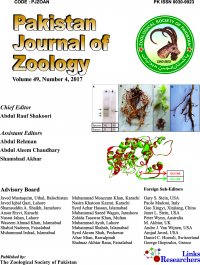Relationship between Glucose Metabolism Abnormalities and Neuronal Autophagy and Apoptosis in Patients with Ischemic Stroke and Cognitive Impairment
Relationship between Glucose Metabolism Abnormalities and Neuronal Autophagy and Apoptosis in Patients with Ischemic Stroke and Cognitive Impairment
Ying Feng1 and Xuqun Pei2,*
ABSTRACT
This study was aimed to investigate the relationship between glucose metabolism abnormalities and neuronal autophagy and apoptosis in patients with ischemic stroke and cognitive impairment. Glucose metabolism abnormalities and cognitive function in patients with ischemic stroke were detected by glucose tolerance test and neuropsychological test. Morris water maze test was used to detect learning and memory ability of MCAO model rats. RT-PCR and Western Blot method were used to detect the expression of autophagy and apoptosis genes in neurons. We found that patients with ischemic stroke suffered from different degrees of impaired glucose tolerance, and the HbA1c index of patients with impaired glucose regulation and diabetes was higher than that of the normal glycemic group at the beginning and 3 months after the onset. The proportion of LAA and SAO in the two groups, other than the normal blood glucose group, reached 61.90%, 52.00%, 33.30%, and 40.00%, respectively. Compared with the other two groups, the MMSE and Mattis dementia scale scores and their attention were different in the impaired glucose regulation group; animal experiments found that the learning ability and memory ability of rats with ischemic stroke were reduced, and the expression levels of neuron autophagy-related genes Bclin-1, LC3, Bcl2 and apoptosis-related genecapase 3 increased. To conclude, aggravated cognitive dysfunction in patients with ischemic stroke could cause glucose metabolism abnormalities and increase neuronal autophagy and apoptosis.
To share on other social networks, click on any share button. What are these?










